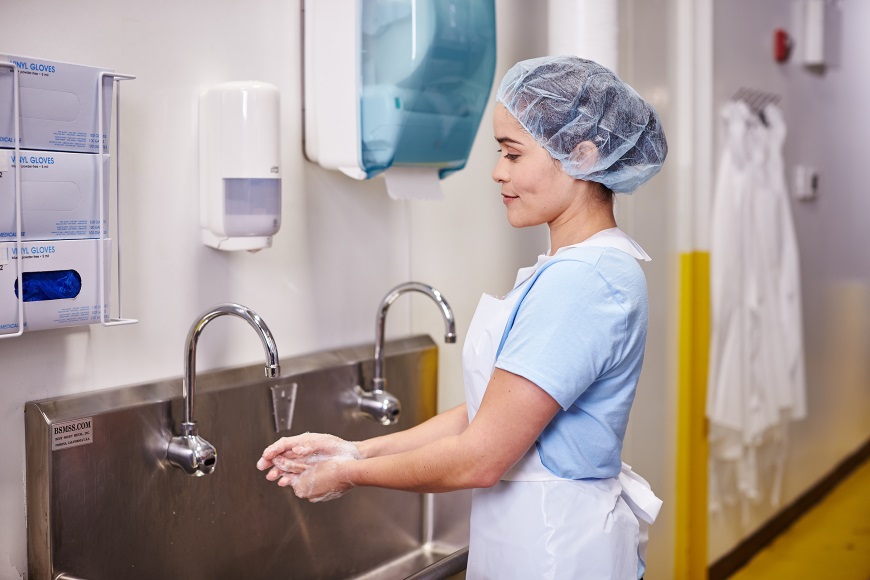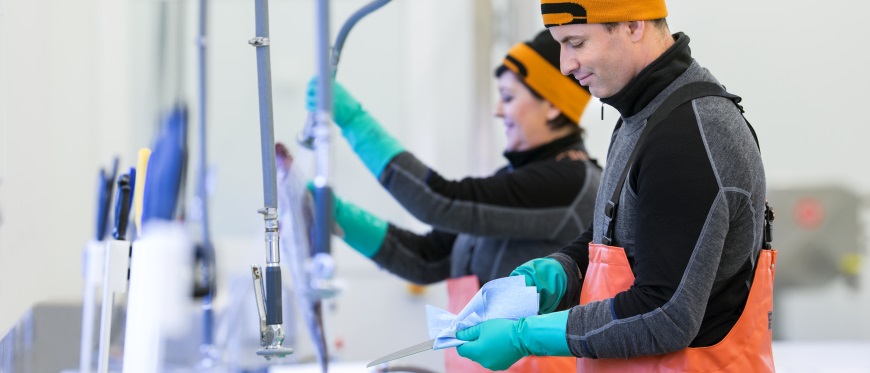Did you know that food processing is one of the fastest growing industries in the world? The global market is projected to grow from $105.13 billion in 2022 to $140.17 billion by 2029 due to anticipated rise in demand for different food and beverage products1.
Consumer demands are increasing, and manufacturers are modifying their offerings and processes to reflect this. The onus is on food processors to keep up by keeping the supply chain moving and avoid profitability threats such as safety recalls. The average cost of a recall is $10M in direct costs2, in addition to brand damage and lost sales according to a study by the Food Marketing Institute and the Grocery Manufacturers Association2. To meet consumer demand, respond to market trends and compete with specialist start-ups, food processing companies should aim to improve their operational efficiencies. Here, we explore how food manufacturers can improve productivity and thrive in today’s exciting yet challenging market.
Focus on sustaining hygiene compliance
The food processing industry is evolving at rapid speed, but food hygiene compliance has and will always remain paramount to productivity. Did you know that 82% of production managers have experienced reduced production due to non-compliance to hygiene protocols3? Manufacturers should aim to strengthen and sustain hygiene compliance on the factory floor to minimize costly safety failures and product recalls. Investing in the right hygiene products and equipment can improve the safety and compliance of your factory, improving your food hygiene standards.
Consider investing in certified products

Investing in certified products is a good way for food manufacturers to dial up productivity on the factory floor. Did you know that Tork has NSF rated soaps and hand sanitizers acceptable for use in food processing areas? As well as that, our certified wipers are designed to fit seamlessly into your HACCP protocols. The HACCP certified Washstation Dispenser is purpose-built for food processing. It’s engineered to mitigate risks and handle the pressures of a rigorous food processing environment. As the only hands-free, water-resistant dispenser and refill system of its kind, the Tork Washstation Dispenser is built to withstand wet environments and does not require removal during spray-downs, to help keep the work environment safe and hygienic.
Remember that product placement is key
As well as investing in certified products, the placement of these products and systems is vital to improving hygiene compliance, and therefore productivity. Around 95% of production managers agree that efficiency is often reduced when there is a lack of hygiene or cleaning supplies available at the point of use. Ensuring your products are placed in the most efficient position is proved to encourage employee compliance. Related to this, investing in high-capacity dispensers that fit seamlessly into your cleaning or HACCP protocols can prevent downtime on having to fetch stock to replenish.
Lean into lean manufacturing
The term ‘lean manufacturing’ refers to the application of practices, principles, and tools to the development and manufacture of physical products – in this case, food. Many food manufacturers are using lean principles to eliminate waste, optimize productivity, reduce costs and improve innovation in a volatile global market. For example, having the right wipers and dispensers in the right place can maximise factory employee productivity, creating greater profits and a higher level of customer satisfaction.
Consider continuous improvements
Did you know that 97% of production managers agree that having robust, easy to maintain and well-stocked hygiene and cleaning dispensers is critical for increasing hygiene compliance4? Even small continuous improvements can improve operations and optimize efficiency in the food processing industry. According to a Tork survey, 97% of food manufacturers agree that small, continuous improvements are important to improving overall productivity3. As the name implies, continuously improving your operations can be a great way to help you optimise efficiency.
Sources
1 Fortune Business Insight: Food processing and handling equipment market size
2 Food Safety Magazine: Recall: the biggest threat to profitability
3 Tork: Sustaining hygiene compliance
4 Tork: Food processing
